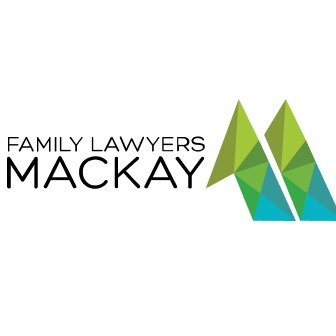

Family Lawyers Mackay
Mackay, Australia
Family Lawyers Mackay is a boutique, locally-run family law firm conveniently located in central Mackay, QLD and proudly servicing the Greater Mackay region. Our clients come from all walks of life and from all parts of the region including Mackay, Proserpine, Andergrove, Beaconsfield, Blacks Beach, Bucasia, Cremorne, Dolphin Heads, Eimeo, Erakala, Foulden, Glenella, Mackay Harbour, Mount Pleasant, Nindaroo, Ooralea, Paget, Racecourse, Richmond, Rural View, Shoal Point, Slade Point, Te Kowai, QLD, interstate and overseas.
Free • Anonymous • Expert Lawyers
Need Personal Legal Help?
Connect with experienced lawyers in your area for personalized advice on your specific situation.
No obligation to hire. 100% free service.
Practice areas
Family Lawyers Mackay specialises in Mediation and Family Dispute Resolution as Part of Our Family Law Practice.
A service to help to separate families resolve their family law disputes. The Family Dispute Resolution Service offered by Family Lawyers Mackay includes family law education, legal information, family counseling, dispute resolution, family conciliation, and group work to help couples who are separating resolve their family law disputes. These disputes may include conflicts over child care, child support, financial arrangements, and property settlement.
Need help with a legal matter?
Reach out to our team for expert legal guidance tailored to your situation.
Our Partners and Associates

Mark Game also holds a Queens Commission as an officer in the Australian Army and gave over 20 years service to the Army Reserve as an Infantry Corp Officer before going inactive in 2001. This experience also assists Mark Game to focus on and adopt a thoroughly practical approach to finding solutions to legal problems.

Accredited Specialist Family Lawyer
Ian Field is a highly experienced and Accredited Specialist Family Lawyer in Mackay and Brisbane with a wide range of knowledge in many aspects of Family Law and Children’s matters holding certifications in mediation and collaborative practice in Australia & UK.

One of our most respected team members, Aaron is ready to take your case head on. Inside the courtroom or over a cup of coffee, Aaron is your trusted source of legal advice & professional representation for:
- Family law matters
- Criminal law
- Litigation and disputes
- Debt collection
- Personal injury claims
- Domestic Violence
Aaron brings a wide range of skills and experience to the management team at Family Lawyers Mackay and offers expertise in many elements of the law.
Case results
Child Custody | Mackay Solicitors | Child Custody Lawyer Mackay
Child Custody
Read moreBreaking up or separating is a traumatic and difficult time for any adult. But for couples with children, often the first thought is of the impact it will have on the children. The second thought is almost always to wonder what the law says about parenting arrangements and how the separation will affect future contact with the children. At all times, you should be fully informed about your legal rights and position as well as those of the Child Custody involved.
If you are separating obtain full details about the parenting of your children, your rights, and obligations. For more information please visit our blog on Child Custody.
At Family Lawyers Mackay, our team can talk you through the underlying legal principles and explain what confusing terms such as equal shared parental responsibility, and significant and substantial time mean for you and your children in practical terms. We’ll guide you through all your options for finding parenting solutions that work for you and your partner.

We’ll tell you what steps you need to take and when you need to take them. We’ll also let you know what you should avoid so you don’t compromise your legal rights. When necessary, we’ll take steps to obtain your legal protection in situations involving family violence.
If you would like to read the relevant sections of the legislation in regard to Divorce Property Settlement please go to the Family Law Act.
Child Support | Child Support Lawyers | Family Lawyers Mackay
Child Support
Read moreThe Family Court does not generally have the power to order child support maintenance for children.
Maintenance for children is dealt with by the Child Support Agency (‘CSA’). All applications for child support (child maintenance) are by way of an application to the CSA. If you are not satisfied with an assessment that has been made using a formula set out in the legislation, then you may seek a review of the assessment with the CSA. If you are not satisfied with the Review Officer’s report, then you can lodge an appeal with the CSA and, if you are not satisfied with the decisions made on the appeal, you can then apply to the Family Court for a variation of the assessment that has been made.
If you and your partner reach your own decisions about how child maintenance is to be applied and paid, you can enter into a child support agreement. Once drafted by your lawyers, the agreement can then be lodged with the CSA.
The CSA will accept an agreement if you and your partner are gainfully employed and not receiving pensions or government assistance (apart from child assistance). Child support payments will then be paid in accordance with the terms of that agreement. If either you or your partner wants to vary the child support agreement in any way, this can only be done by making an application to the Family Court. The CSA does not have the power to vary or alter a child support agreement.
Changes to the Child Support Scheme
In 2006, the Federal Government announced a number of changes that had to be made to child support agreements within three years. The changes were made to adapt child support arrangements to adequately reflect changes in the circumstances of Australian families. The overall goal of the federal government in changing the law was to induce reluctant parents to take responsibility for the upbringing of their children, by providing adequate financial support.
Capacity to pay vs. capacity to earn
There are two basic categories of applications to change an assessment of child support, these are, ‘capacity to pay and ‘capacity to earn.
Capacity to Pay
Decisions based on a capacity to pay usually involve arguments that the parent required to pay child support (‘the Payer’) has earned more than they have disclosed to the CSA. In these circumstances, the parent receiving child support payments (‘the Payee’) usually alleges that the Payer has minimized their taxable income, using methods such as company or trust accounting.





